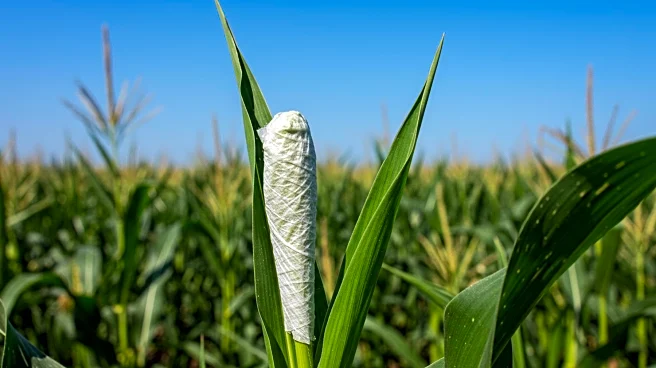What's Happening?
Corn growers in the Midwest are experiencing a phenomenon known as tassel wrap, which threatens pollination and potential yields. Tassel wrap occurs when upper leaves remain tightly bound around the tassel during pollination, delaying pollen release and affecting kernel set. Reports from states like Iowa, Kansas, Illinois, and Indiana link tassel wrap to abrupt weather changes, including shifts from cool nights to high daytime temperatures. This condition can lead to incomplete kernel development, impacting overall yield.
Why It's Important?
The occurrence of tassel wrap highlights the vulnerability of corn crops to environmental stressors and the importance of timely pollination for yield optimization. This issue underscores the need for farmers to monitor weather patterns and adapt management practices to mitigate risks. The impact on pollination can result in significant yield losses, affecting farmer income and market supply. Understanding the genetic and environmental factors contributing to tassel wrap can guide future crop management decisions and improve resilience against similar challenges.
What's Next?
Farmers are advised to scout fields and assess pollination success at the R3 stage to evaluate the impact of tassel wrap. Management strategies may include documenting affected hybrids and working with seed providers to select alternatives for future planting. While prevention options are limited, maintaining stress-reducing practices and understanding hybrid susceptibility can help reduce risk. The agricultural community will continue to study tassel wrap to develop effective solutions and improve crop resilience.










